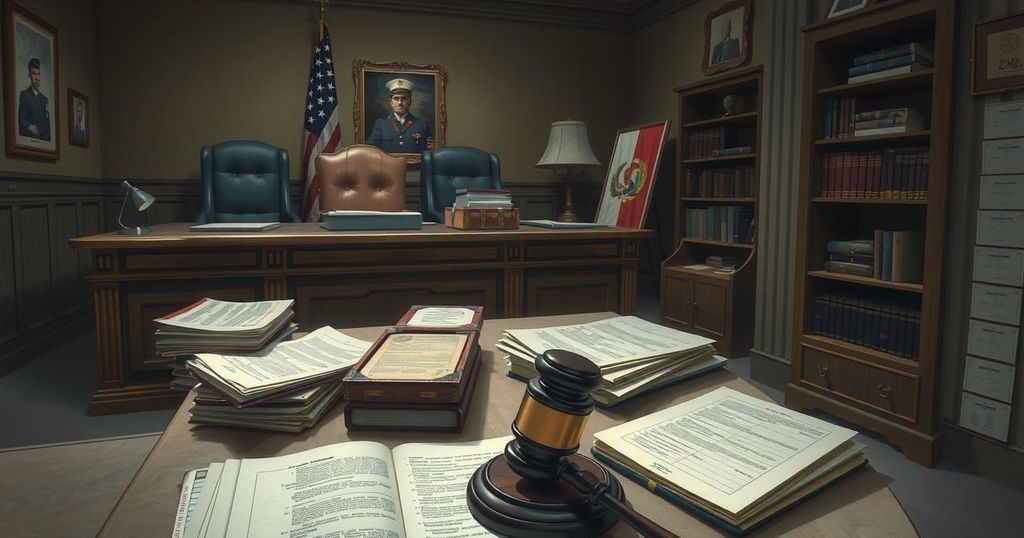Former President Joseph Kabila’s allies are to be questioned by a military prosecutor amid accusations of supporting the M23 rebels in eastern Congo. President Felix Tshisekedi has accused Kabila of these ties, while discussions about the political future of the country continue. Some officials will respond to the invitations to clarify their stance against armed groups amidst heightened conflict in the region.
In a notable development regarding political tensions in the Democratic Republic of Congo, officials from the party of former President Joseph Kabila have been summoned to meet with a military prosecutor. This invitation comes amid advancing rebel forces in the east, specifically those supported by Rwanda. The motives behind these invitations remain uncertain, as noted by Jean Mbuyu, a lawyer for the officials and a former security advisor to Kabila.
President Felix Tshisekedi has recently accused Joseph Kabila of supporting the M23 rebels, who have taken control of significant cities in eastern Congo since early this year. Despite their complex power-sharing history, Kabila has started engaging opposition politicians and civil society leaders to deliberate on the country’s political pathway, particularly in light of Tshisekedi’s handling of the M23 insurgency.
The military prosecutor’s office dispatched around ten invitations to members of Kabila’s People Party for Reconstruction and Democracy. However, only three individuals, including Aubin Minaku, the party’s vice president, and Emmanuel Ramazani Shadary, a former interior minister, are expected to attend the questioning in Kinshasa.
Minaku has stated that the officials are responding to the invitations to mitigate any allegations of suspicion. He firmly denied any connections to the M23 or other armed groups, asserting a commitment to a ‘purely Republican approach,’ which he defines as loyalty to the nation. He emphasized, “We clearly denounced any illicit presence of foreign forces.”
The resurgence of the M23 represents a critical escalation in a prolonged conflict tied to Rwanda’s historic 1994 genocide and the pursuit of control over the Democratic Republic of Congo’s extensive mineral wealth. Despite allegations, Rwanda maintains that it is not aiding M23 but rather defending itself against hostile forces.
The ongoing political situation in the Democratic Republic of Congo is marked by increased scrutiny of former President Joseph Kabila and his political allies, particularly in light of accusations regarding their involvement with the M23 rebel group. As military prosecutors prepare to question key party officials, a significant tension arises against a backdrop of historical conflict and territorial disputes concerning resource control. The actions taken by Kabila’s allies aim to maintain their political legitimacy amidst mounting accusations and unrest.
Original Source: www.usnews.com




